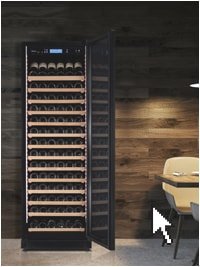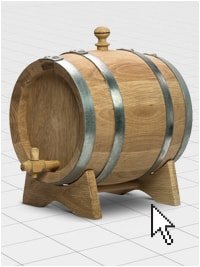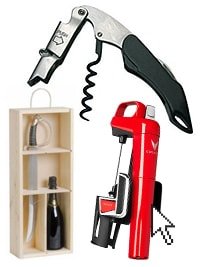Privacy Policy
Wineandbarrels requires the following information when you shop with us:
Name, address, phone number, and email address.
We also register the IP address from which any purchase is made. This information is normally not used, but can be used in a potential police investigation. The IP address is stored as long as necessary in relation to any potential police investigation. All fraudulent orders will be reported to the police.
We register and pass on the personal data necessary to deliver the goods to you.
The personal data is registered with Wineandbarrels A/S and stored for five years in accordance with the Accounting Act, after which the data is deleted.
We collaborate with a number of other companies that store and process data. These companies process information solely on our behalf and may not use it for their own purposes.
In the case of any electronic payment, a secure encrypted method is used through the webshop system. It is an approved provider certified by the E-mark.
The shop system uses so-called cookies to manage the contents of the shopping cart. A cookie is a file stored on your own PC. We use these cookies to recognize you and, for example, remember which items are in the shopping cart when you shop online at wineandbarrels.eu. It is also possible to ask the system to save your address information for the next visit. If you later wish to delete this information, this can be done via your browser settings. In Internet Explorer, for example, this is done via the menu "Tools" and the menu item "Internet Options".
We only collaborate with data processors within the EU or in countries that can provide your information with adequate protection.
The data controller at www.wineandbarrels.eu is Jakob Dau.
According to the EU General Data Protection Regulation (GDPR), you have a number of explicit rights:
Article 15 GDPR – Right of access
You have the right as the data subject to see the personal data we process about you. You also have the right to receive information about the processing of your personal data.
Article 16 GDPR – Right to rectification
You have the right as the data subject to have incorrect personal data about yourself corrected. You also have the right to have incomplete personal data completed, taking into account the purposes of the processing.
Article 17 GDPR – Right to erasure
The right to erasure means that a data subject – with certain exceptions – has the right to have information about themselves deleted. The data subject has the right to have their personal data deleted without undue delay when one of the following applies:
-
If it is no longer necessary for us to retain the data about the data subject for the purposes for which we collected the data.
-
If we have based your processing on consent, and the data subject now withdraws their consent, and we have no other legal basis for the processing.
-
If we process the data unlawfully (without legal basis in Chapter II of the GDPR).
-
If we are required to delete the data under EU law or national law of a member state.
-
If we are required to delete the data as a consequence of the data subject exercising their right to object.
-
If we are a provider of an information society service (e.g., a social network), and you have based your processing of personal data on consent given by the data subject's guardian, and the data subject now withdraws their consent after turning 13 years old.
Article 18 GDPR – Right to restriction of processing
You have the right to restrict the processing of your personal data in certain cases, so that the data may only be processed for storage. The data subject has the right to restrict the processing of their personal data when one of the following applies:
-
The data subject contests the accuracy of the personal data. In this case, we must restrict the processing of the data for a period allowing us to verify the accuracy of the personal data.
-
If we process the data unlawfully, and the data subject opposes the erasure of the data but requests the restriction of its use. The data subject may prefer restricted processing if they want to be able to document which data was involved in the processing of a case.
-
If we no longer need the personal data for processing, but it is necessary for the data subject to establish, exercise, or defend a legal claim.
-
The data subject has objected to your processing. We must restrict the processing of the data during the period it takes to determine whether our legitimate interests override those of the data subject.
Article 20 GDPR – Right to data portability
The right to data portability entails, first, a right for the data subject to receive their own personal data, which they have provided to us, in a structured, commonly used, and machine-readable format for personal use without hindrance.
Secondly, the right includes the ability for the data subject to transfer these personal data from one data controller to another. The personal data must be able to be moved, copied, and transferred from one IT environment to another without hindrance, if technically feasible.
Article 21 GDPR – Right to object
The right to object means that the data subject has the right at any time – for reasons related to their particular situation – to object to the otherwise lawful processing of their personal data.
If we as the data controller receive an objection from the data subject, we will consider whether the objection is justified, even if our processing of the data is otherwise lawful.
You can write to Jakob at: jakob@wineandbarrels.com.
When you use wineandbarrels.eu, you agree that we use cookies. We use cookies to keep track of your choices (e.g., which items are placed in the shopping cart). In addition, we use cookies to target ads on external platforms to you.
You have the right to file a complaint with your national data protection authority if you are dissatisfied with the way we process your personal data. You can find the contact details for your national data protection authority on their respective websites.
































